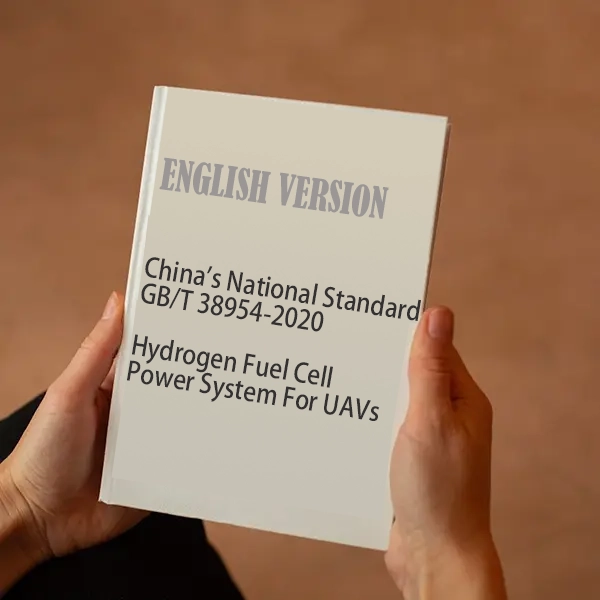Hydrogen isn’t just a buzzword—it’s transforming industries from energy to aviation.
Hydrogen is primarily used in refining, ammonia production, fuel cells, metal treatment, and rocket propulsion.
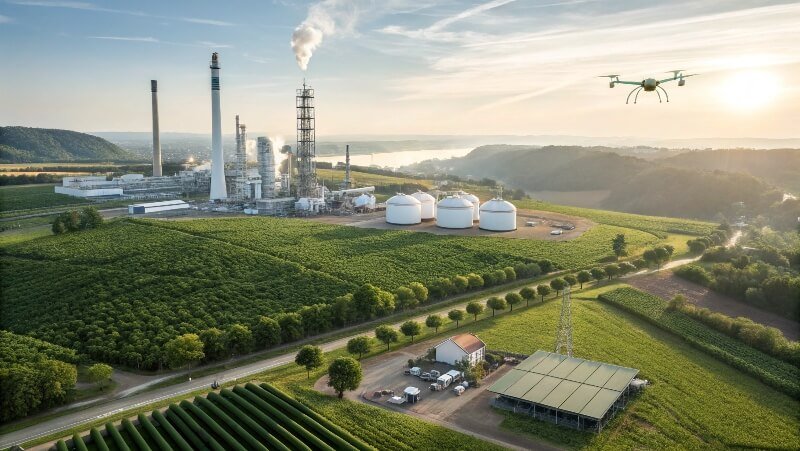
We often think of hydrogen as a future fuel—but it’s already an integral part of our world. From powering UAVs to producing fertilizer, its applications are broad and growing fast.
Hydrogen is only useful for carsTrue
Hydrogen has many more uses beyond mobility, including in industrial processes and aerospace.
Why Is Hydrogen So Valuable?
Hydrogen solves three global energy problems: carbon emissions, energy storage, and mobility range.
Hydrogen is valuable because it is clean, lightweight, energy-dense, and compatible with many forms of transport and industry.
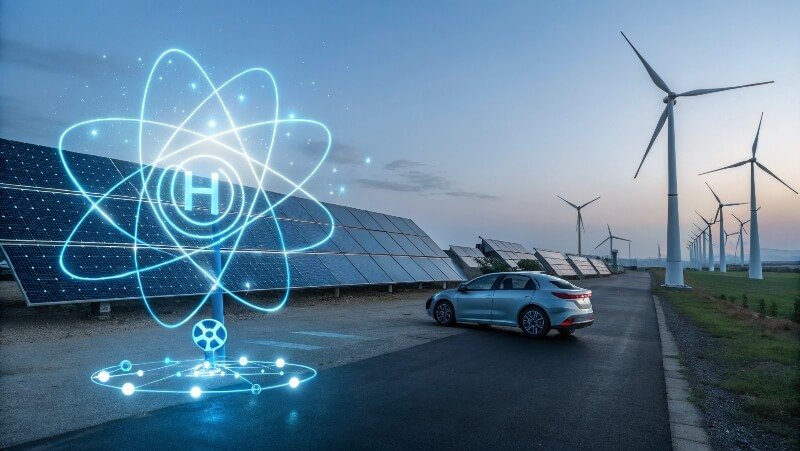
Hydrogen brings a unique combination of high energy density and zero emissions. Unlike batteries, it doesn’t degrade over time and can refuel within minutes. Here’s why it matters:
Clean and Renewable
Hydrogen, when produced from water using renewable electricity, emits only water vapor. This makes it a cornerstone for a clean-energy future.
| Source | Emission Output | Storage Method |
|---|---|---|
| Hydrogen (green) | Water vapor | Pressurized tank |
| Gasoline | CO₂, NOx | Liquid fuel tank |
| Lithium battery | None (use), waste (production/recycle) | Recharge cycle |
Lightweight and Powerful
Per unit of weight, hydrogen carries three times more energy than gasoline. This is why it’s favored in aerospace and drone applications.
Scalable for Grid Use
Hydrogen acts as a buffer for renewable energy, storing excess solar and wind power. It fills the gap between intermittent generation and constant demand.
Hydrogen is only useful for small-scale applicationsTrue
Hydrogen can scale from drones to entire cities, enabling grid storage and industrial use.
What Are the 5 Main Uses of Hydrogen?
Hydrogen is the invisible workhorse behind some of the world’s most important industries.
The top five uses of hydrogen are: refining, fertilizer production, metal processing, mobility, and aerospace.
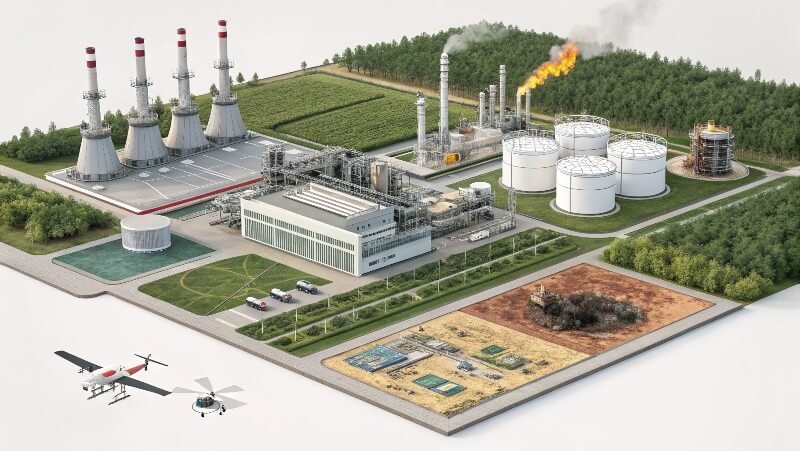
Each of these sectors benefits from hydrogen’s clean profile and energy potential. Let’s look deeper:
1. Oil Refining
Hydrogen removes sulfur from fuels, helping meet emissions regulations. More than one-third of hydrogen production goes here.
2. Ammonia Production
Used for fertilizer, ammonia is created by combining hydrogen with nitrogen. This feeds over half the world’s crops.
3. Metal Treatment
Hydrogen replaces carbon-intensive methods in steel and metal refinement. Green steel is a growing trend.
4. Fuel Cells for Mobility
Hydrogen fuel cells1 power drones, buses, scooters, and trucks. They offer long range and fast refueling.
5. Space and Aerospace
NASA has used hydrogen as rocket fuel for decades. Hydrogen’s energy-to-weight ratio is unmatched in launch systems.
Hydrogen is mostly used for carsTrue
Mobility is important, but industrial use still dominates hydrogen demand.
Is Hydrogen Poisonous or Hazardous?
Hydrogen is non-toxic, but it’s flammable in air—just like gasoline or methane.
Hydrogen isn’t poisonous, but it requires safe handling because of its flammability and high diffusivity.
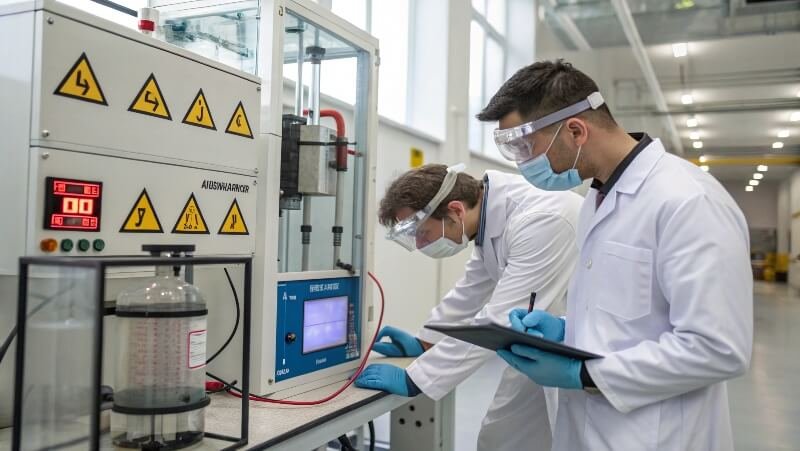
Safety depends on design, not the molecule. Hydrogen has no color or odor, and it dissipates rapidly into the air if leaked—unlike heavier gases like propane.
Fire Risk vs. Toxicity
| Factor | Hydrogen | Gasoline |
|---|---|---|
| Toxicity | Non-toxic | Toxic fumes |
| Flammability | High (in air) | High (liquid vapor) |
| Odor | None | Strong |
Engineering Mitigates Risk
Hydrogen systems use pressure valves, leak sensors, and composite tanks to maintain safety. These systems are standard in automotive and aerospace engineering.
Hydrogen is more dangerous than gasolineTrue
Proper containment makes hydrogen as safe or safer than conventional fuels.
Which Is More Explosive: Hydrogen or Gasoline?
Gasoline burns slower but releases more energy per volume; hydrogen ignites faster, but is safer in open environments.
Hydrogen ignites more easily, but disperses quickly, making explosions less likely in open spaces than gasoline.

Hydrogen’s flammability is real—but its explosive power is often overstated. In a confined space, gasoline can pool and linger, increasing danger.
Comparing Combustion Profiles
| Property | Hydrogen | Gasoline |
|---|---|---|
| Ignition Temp | 500°C | 280°C |
| Flame Speed | High | Medium |
| Dispersal | Rapid (gas) | Slow (liquid) |
Risk in Real Scenarios
Studies show hydrogen-fueled vehicle fires are less severe and shorter-lasting than gasoline ones, especially in open air.
Hydrogen explosions are more deadlyTrue
Hydrogen dissipates quickly and burns cleanly. Most 'explosions' stem from poor containment, not the gas itself.
What Are 5 Fun Facts About Hydrogen?
Hydrogen is more than just fuel—it’s a fascinating element that shaped the universe.
Hydrogen is the first element, the most abundant, and powers both stars and next-gen drones.
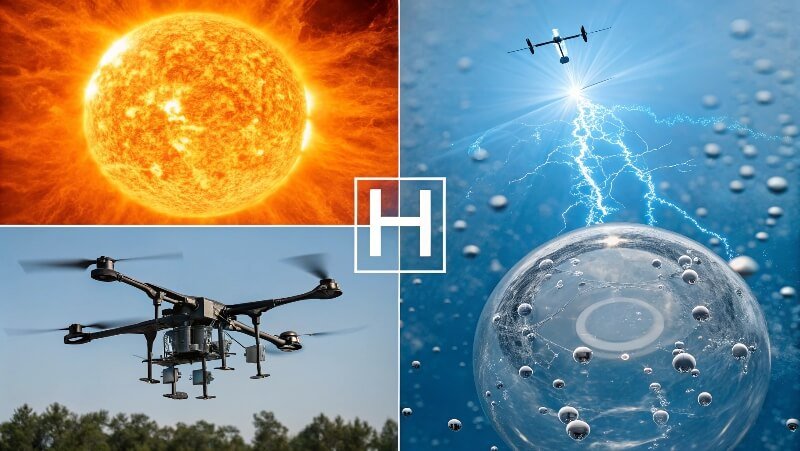
Let’s close with some surprising insights:
1. It Was Born in the Big Bang
Hydrogen formed minutes after the universe began. It still makes up about 75% of its elemental mass.
2. It’s the Lightest Element
Hydrogen atoms are so small and light, they can escape Earth’s gravity and drift into space.
3. It Powers the Sun
The sun fuses hydrogen atoms into helium. This process fuels all life on Earth.
4. It Can Be Produced from Water
Using electrolysis, we split water into hydrogen and oxygen. This process enables renewable hydrogen.
5. It Makes Drones Fly for Hours
Hydrogen fuel cells can power drones for 4–6 hours, compared to less than 1 hour with lithium-ion batteries.
Hydrogen is too complicated for everyday useTrue
Hydrogen systems are becoming simpler and more reliable every year.
Conclusion
Hydrogen is clean, powerful, and full of potential—from feeding the planet to flying high above it. Its value is far more than fuel—it’s the foundation of future energy.
-
Explore how hydrogen fuel cells are revolutionizing transportation with their efficiency and environmental benefits. ↩


